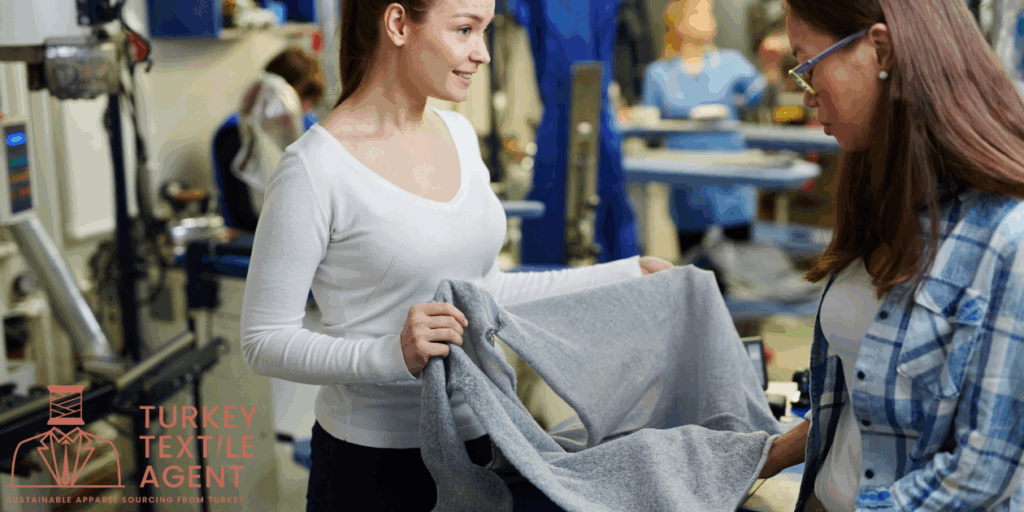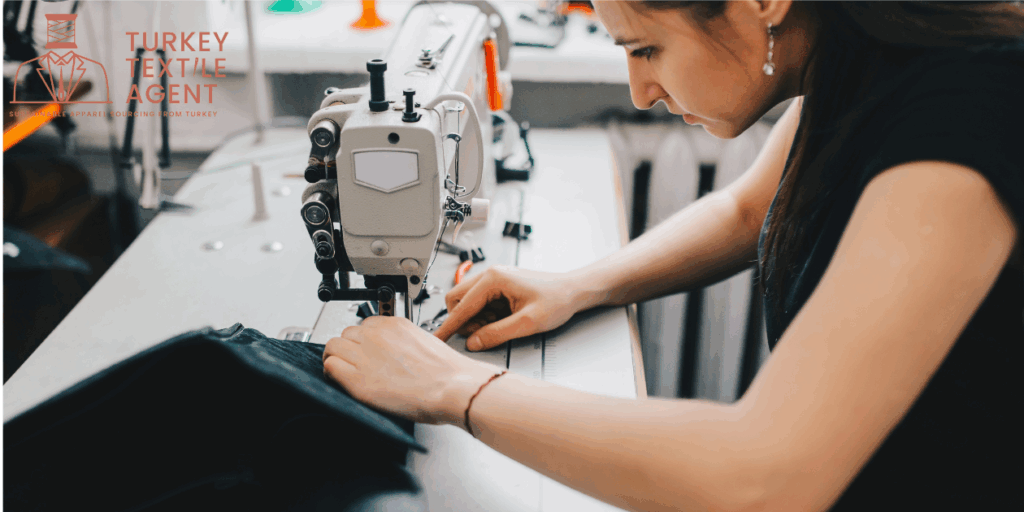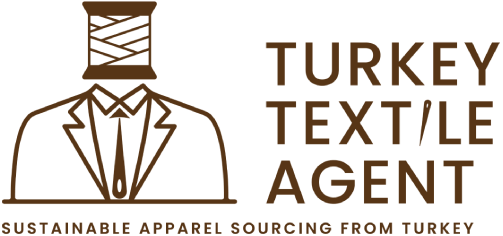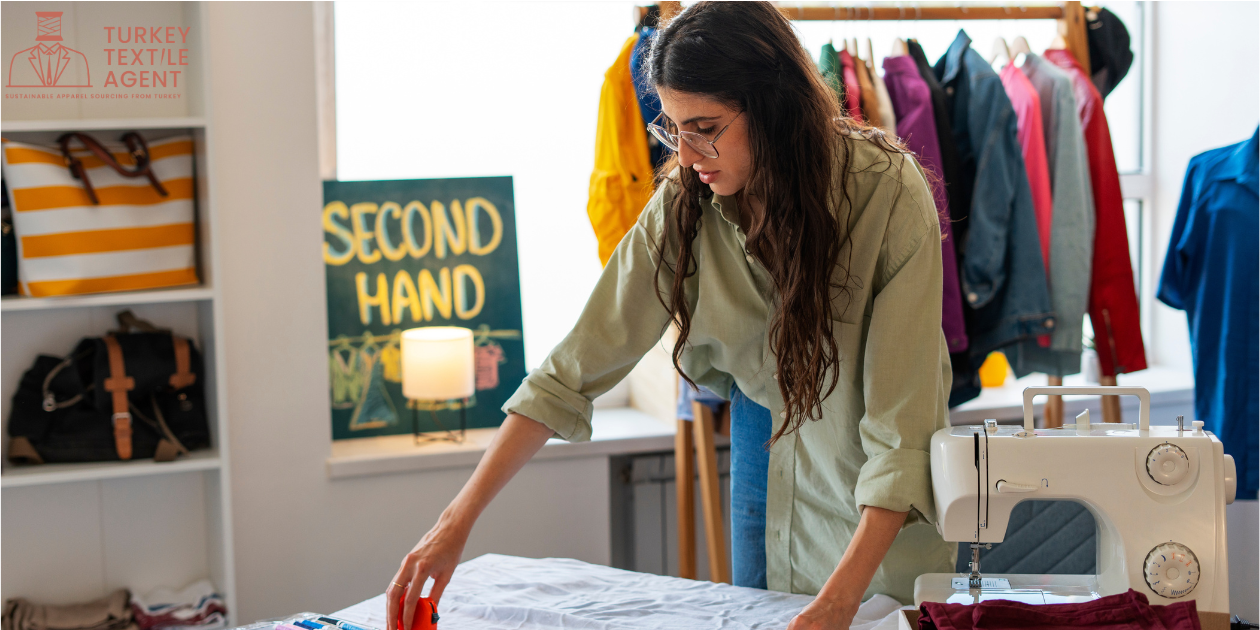Launching a fashion brand with Turkish manufacturing partners opens a gateway to world-class quality, competitive pricing, and ethical production. Turkey, a bridge between Europe and Asia, is renowned for its advanced textile industry, offering a dynamic ecosystem for designers and entrepreneurs seeking to build a strong, scalable, and sustainable fashion business.
Below, we present expert-level insights into sourcing, production, compliance, and strategic growth—everything you need to know to outperform your competitors and build a lasting brand.
Why Turkey Is the Go-To Destination for Fashion Manufacturing

Turkey has rapidly become a global leader in textile production, and for good reason:
- Strategic location: Easy access to both European and Middle Eastern markets.
- Skilled labor force: Generations of craftsmanship blended with modern technology.
- Short lead times: Faster production and delivery compared to Asia.
- Sustainability standards: Strong compliance with European environmental and labor regulations.
Keywords integrated: Turkish fashion manufacturers, ethical production, European textile hub.
Insert image suggestion: Map infographic showing Turkey’s geographic advantage.
Choosing the Right Turkish Manufacturing Partner
Finding a reliable Turkish manufacturer is the cornerstone of launching a successful fashion brand. Here’s what to look for:
1. Verify Certifications and Compliance
Work only with factories that offer:
- GOTS (Global Organic Textile Standard)
- OEKO-TEX® Standard 100
- ISO 9001 Quality Management
These certifications ensure eco-friendly practices and ethical labor policies, crucial for brand reputation.
2. Assess Production Capabilities
Whether you need cut-and-sew, full package production, or private label services, evaluate:
- Machinery and equipment
- Product categories they specialize in (e.g., denim, knitwear, sportswear)
- Monthly capacity and scalability
3. Review Samples and MOQ
Always ask for:
- A comprehensive tech pack
- Sample turnarounds
- MOQ flexibility (Minimum Order Quantities)
Insert image suggestion: Comparison chart of Turkish manufacturers’ capabilities.
Creating a Foolproof Tech Pack
A well-prepared tech pack bridges the gap between your design vision and the manufacturer’s execution. It must include:
- Flat sketches and detailed product visuals
- Material and fabric specifications
- Size charts and grading rules
- Color references (Pantone codes)
- Construction details like stitching, buttons, and trims
Use platforms like Techpacker or Adobe Illustrator for building professional-grade documentation.
Building a Supply Chain That Supports Your Brand Vision
An efficient and transparent supply chain is vital for meeting your brand’s ethics and quality standards. Consider the following structure:
- Raw Material Supplier → Fabric Mill → CMT (Cut, Make, Trim) Factory → Logistics Partner
- Utilize ERP software to manage production timelines and inventory.
- Plan for buffer time during holidays and high-demand seasons.
Insert infographic suggestion: Visual flowchart of fashion supply chain with Turkish manufacturers.
Understanding Lead Times and Seasonal Planning
Turkish manufacturers generally offer lead times between 4 to 8 weeks, depending on complexity. To stay ahead:
- Align production schedules with global fashion calendars.
- Place initial sample orders at least 3-4 months in advance.
- Negotiate for smaller restock runs once the first batch is proven successful.
The Importance of In-Person Visits and Factory Audits

Nothing replaces firsthand experience. When possible:
- Visit factories in Istanbul, Bursa, Izmir, or Denizli.
- Conduct an on-site quality control audit.
- Meet production managers and establish direct relationships to foster trust.
If travel isn’t feasible, request:
- Factory walk-through videos
- Real-time video calls
- Third-party inspections (e.g., SGS, Intertek)
Pricing Strategies for Competitive Margins
While Turkey offers affordable manufacturing, your brand must maintain healthy margins. Use this pricing model:
Cost of Goods Sold (COGS) + Freight + Import Duties = Landed Cost
Then apply markup:
- Keystone markup (2x-3x) for wholesale
- Direct-to-consumer markup (4x-5x) for online brands
Be sure to factor in:
- Currency fluctuations (Turkish Lira vs. USD/Euro)
- Unexpected costs (sampling, revisions, customs)
Sustainability and Ethical Manufacturing: A Brand Imperative
Modern consumers demand transparency and responsibility. Work with Turkish partners who offer:
- Traceable supply chains
- Use of organic cotton, recycled polyester, or eco-viscose
- Waste-reduction processes like digital printing or waterless dyeing
- Fair wages and safe working conditions
Highlight these efforts in your brand story and marketing campaigns to win customer loyalty.
Shipping, Logistics, and Importing from Turkey
Once production is complete, streamline shipping with:
- Freight Forwarders experienced in Turkey-to-Europe/USA routes
- Incoterms understanding (FOB vs. CIF vs. DDP)
- Customs documentation: Commercial Invoice, Packing List, Certificate of Origin
Insert image suggestion: Logistics map showing common Turkish shipping ports.
Avoiding Common Pitfalls in Turkish Sourcing
1. Language Barriers
Work with agents or manufacturers fluent in English or hire a bilingual liaison.
2. Overpromising Manufacturers
Be cautious of factories that offer unrealistic prices or timelines. Vet references and conduct video interviews.
3. Inadequate Quality Checks
Implement regular inspections across production milestones:
- Pre-production
- Mid-line quality check
- Final inspection
How Turkey Textile Agent Can Help You Scale Seamlessly
At Turkey Textile Agent, we act as your bridge to the best of Turkish manufacturing. We help brands:
- Match with vetted, ethical factories
- Oversee production from sample to delivery
- Manage negotiations, timelines, and quality checks
- Offer low MOQ options for emerging brands
Our team is based in Turkey and the U.S., ensuring clear communication, full transparency, and on-ground support.
Case Study: Scaling a Streetwear Brand from Concept to Retail
One of our clients, a European streetwear startup, scaled from 100 to 10,000 units in under 18 months. Here’s how:
- Launched with 2 SKUs using GOTS-certified cotton
- Used Instagram influencer marketing and direct DTC model
- Maintained 50% profit margin
- Transitioned to wholesale by year two using the same Turkish supplier network
Final Tips to Launch Your Fashion Brand with Confidence
- Start small, then scale based on real data.
- Build relationships, not just transactions, with your manufacturing partners.
- Invest in branding, packaging, and marketing just as much as production.
- Partner with a trusted sourcing agency to remove the guesswork.

